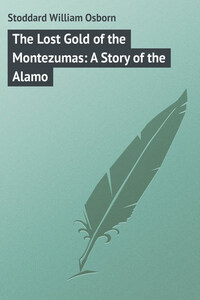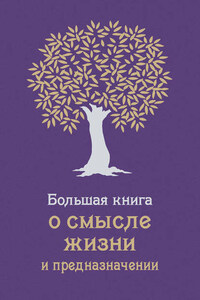CHAPTER I.
THE GODS OF THE MONTEZUMAS
It was a gloomy place. It would have been dark but for a heap of blazing wood upon a rock at one side. That is, it looked like a rock at first sight, but upon a closer inspection it proved to be a cube of well-fitted, although roughly finished, masonry. It was about six feet square, and there were three stone steps leading up in front.
Behind this altar-like structure a vast wall of the natural rock, a dark limestone, had been sculptured into the shape of a colossal and exceedingly ugly human face, – as if the head of a stone giant were half sunken in that side of what was evidently an immense cave.
There were men in the cave, but no women were to be seen. Several of the men were standing near the altar, and one of them was putting fuel upon the fire. The only garment worn by any of them was a ragged blanket, the Mexican serape. In the middle of the blanket was a hole, and when the wearer's head was thrust through this he was in full dress.
There was no present need for carrying weapons, but arms of all sorts – lances, swords, bows and sheaves of arrows – were strewn in careless heaps along the base of the wall. Besides these, and remarkable for their shapes and sizes, there were a number of curiously carved and ornamented clubs. All the men visible were old and emaciated. They were wrinkled, grimy, dark, with long, black-gray hair, and coal-black, beady eyes. Withal, there was about them a listless, unoccupied, purposeless air, as if they were only half alive.
They seemed to see well enough in that lurid half light, and they wandered hither and thither, now and then exchanging a few words in some harsh and guttural dialect that seemed to have no dividing pauses between its interminable words.
Nevertheless, this was not the only tongue with which they were familiar, for one of the men at the altar turned to those who were near him and spoke to them in Spanish.
"The gods have spoken loudly," he said. "They have been long without service. They are hungry. Tetzcatl will go. He will find if the Americans are strong enough to strike the Spaniards in Texas. He will bring them to serve the gods in the valley of the old kings. He will stir up the Comanches and the Lipans. The Apaches in the west are already busy. The gods will be quiet if he can arouse for them the enemies of Spain."
For a moment the dark figures stood as still as so many statues, and then a sepulchral voice arose among them.
"The men of the North will not come," it said. "The Texans cannot defend their own towns from the locusts of Santa Anna. The Comanches and the Lipans are scalping each other. The Apaches have been beaten by Bravo's lancers. All white men need to be hired or they will not fight. We have nothing wherewith to hire them."
A hoarse and mocking laugh burst from the lips of Tetzcatl. "Hire them? Pay them?" he said. "No! But hunters can bait wolves. If the trap is rightly set, the wolves will never reach the bait. They will but fall into the pit they are lured to. Come! Let us look at the fire that was kindled for Guatamoczin. The Spaniards perished in the mountains when they came to hunt for the hidden treasures of the Montezumas."
Slowly, as if their withered limbs almost refused to carry them, the weird, dingy, ghastly figures followed him deeper into the cave, and each took with him a blazing pine-knot for a torch. Not one of them appeared to be aroused, as yet, to any especial interest, nor did they talk as they went. Tetzcatl, however, led the way with a vigor of movement that was in startling contrast to the listlessness of his dark companions.
There was no door to unlock, there were no bars to remove, at the end of their silent march. The distance travelled may have been a hundred paces. On either side, as they went, were stalagmites of glittering white, answering to the pointed stalactites which depended from the vaulted cave-roof above. It was a scene the like of which can be found in many another limestone formation the world over. There was nothing exceptional about it, only that the specimens presented were numerous and finely formed.
The torches flared in the strong currents of air which ventilated the cavern, and their smoky light was reflected brilliantly from all the irregular, alabaster surfaces.
The sculptured head of the great idol over the altar; the carefully maintained fire; the presence of the aged keepers, whether they were to be called priests of the shrine or only worshippers, were the distinguishing features of the place.
On went Tetzcatl until he reached a spot where the side walls approached each other, with a space of about thirty feet between them. Here he paused and waited until the others, with several who had not before made their appearance, arrived and stood beside him.
"There!" he said, loudly, pointing with outstretched hand. "Guatamoczin turned to ashes upon the coals of the Spanish furnace, because he refused to reveal this to their greed. Know you not that even now, if the Spaniards did but suspect, there would shortly be an army among the mountain passes? Aye! If the Americans believed that this were here, their thousands would be pouring southward. All Europe would come. Here is the god that they worship, but the secret of its presence has been guarded from them by the old gods of Mexico."













